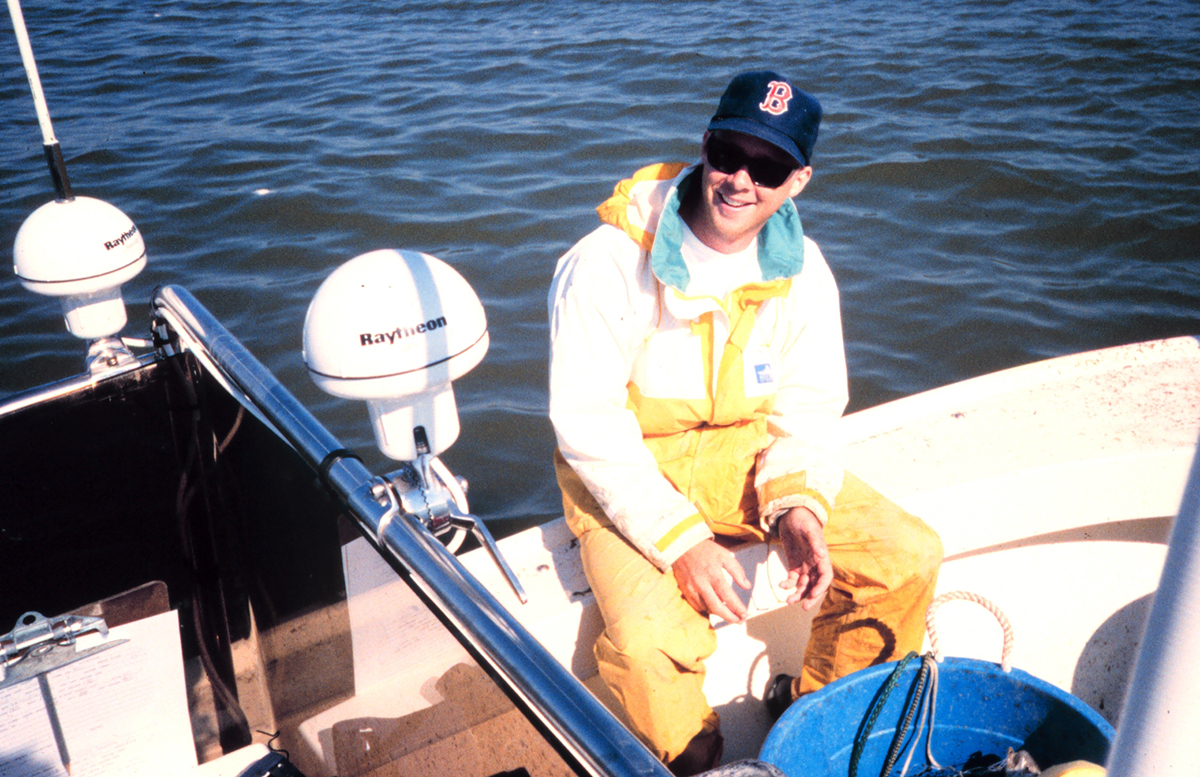
Members of the commission charged with adopting rules to protect the state’s air and water resources voted this week to pursue health-based standards for only three PFAS prevalent in North Carolina drinking water sources.
The Environmental Management Commission’s groundwater and waste management committee Wednesday afternoon declined to recommend to the full commission all eight per- and polyfluoroalkyl substances included in proposed rules set forth by the North Carolina Department of Environmental Quality, or DEQ.
Supporter Spotlight
The commission’s water quality committee also voted Wednesday to defer a motion to send the surface water rule package on all eight PFAS to the commission for action in its full meeting on Thursday.
The decisions of both committees this week further delay the rulemaking process for the chemical compounds, two of which the U.S. Environmental Protection Agency has classified as likely carcinogens.
The earliest the full commission could take action on each committees’ recommendations is at its next meeting in September. The commission can either accept the groundwater committee’s recommendation or put a public notice of standards for all eight PFAS.
The committees’ votes this week frustrated proponents, residents, DEQ officials and some commissioners.
But others on the commission continue to defend their decisions, with those on the water quality committee arguing that they need more time to review revisions to a fiscal analysis associated with the proposed surface water standards.
Supporter Spotlight
Groundwater and waste management committee Chair Joe Reardon said that the members on Wednesday agreed to recommend groundwater health standards for the three PFAS because two – PFOA and PFOS – have been identified by the federal government as likely carcinogens. The third, GenX, which had been discharged into the Cape Fear River directly from Chemours’ Fayetteville Works Facility, was included he said, “because obviously the citizens of this state have struggled with (it).”
The committee agreed not to advance PFBS, PFNA, PFHxS, PFBA and PFHxA.
“The science is evolving in this dynamic and I believe the work of this committee was respectful and very pragmatic,” Reardon said.
Groundwater standards would be used to limit permitted releases of PFAS to groundwater, set the health threshold for providing alternative water supplies to residents whose drinking water exceeds contamination limits, and used to establish goals for cleaning contamination in groundwater.
Commissioner Marion Deerhake was one of two water quality committee members who voted Wednesday to recommend the commission take action on the proposed health-based standards for surface water. Fish consumption also is taken into consideration of surface water standards.
She cautioned fellow committee members during their meeting Wednesday against delaying a vote.
Commissioner and Water Allocation Committee Vice-Chair Robin Smith and Thursday during the full commission meeting that she was disappointed in the groundwater committee’s discussion and decision.
“I sat through the entire (groundwater) committee meeting and didn’t hear any substantive flaw identified in the calculation of those standards,” Smith said. “There was no contradiction of the bottom-line conclusion of the regulatory impact analysis. The adoption of all eight standards would impose no new cost on the state, or the citizens of the state, and, to the contrary, would actually reduce regulatory burden. If we can’t adopt standards in that set of circumstances it is hopeless to consider adopting standards in the much more common circumstance we’re going to be looking at in the surface water standards where there are going to be costs.”
DEQ Assistant Secretary Sushma Masemore asked water quality committee members at their meeting Wednesday to consider three points: whether or not the public accepts the science behind the health impacts of the eight compounds; the presence of the eight PFAS in drinking water sources in the state; and how the state wants to protect public health.
“We’re not saying thousands of PFAS out there, but these eight specific chemicals for which multiple federal agencies, credible academia, scientists and experts around the country and the world have put together in their consensus documentations and peer reviewed reports,” Masemore said. “We’ve shown in the many presentations, data, monitoring information, not only from us, but also third party, the permittees, that shows the presence of these PFAS at different levels. And we have articulated here, the best way to acknowledge the cost and the impact to the regulated community, because in the absence of that, the ratepayers, the everyday North Carolinian is going to have to pay for that to clean up that drinking water. They may have to pay for that through their health outcomes over a lifetime.”
The department estimates the tap water of some 3.4 million residents comes from systems that contain at least one compound exceeding new federal contamination limits on several PFAS.
More than 300 municipal and small water systems in North Carolina sampled in 2022 had PFAS detections above newly established federal maximum contaminant levels, or MCLs. Utilities that have drinking water contaminated with PFAS exceeding the MCLs have five years to integrate technology to bring them into compliance.
The costs associated with upgrading systems are by and large getting passed down to customers.
DEQ officials have been discussing proposed health standards with the commission since last November.
In April, the North Carolina Chamber of Commerce asked DEQ to postpone its pursuit of surface and groundwater standards for PFAS, arguing that further research is needed to understand the economic impacts of the proposed regulations.
Commission members continue to be accused of stalling the rulemaking process in order to protect industry.
During a virtual press conference hosted Tuesday by the Natural Resources Defense Council, or NRDC, speakers, including residents, business owners and elected officials in the lower Cape Fear region, reiterated those claims.
“The EMC’s mandate is to protect, preserve and enhance the state’s air and water resources and it’s time for them to fulfill this responsibility,” Wilmington City Councilwoman Salette Andrews said Tuesday. “I predict they will once again fail to act in the best interest of North Carolinians. The EMC should work for the people, not the Chamber of Commerce. The chamber has its own lobbyists and doesn’t need to commission in order to do their bidding.”
Cape Fear River Watch Executive Director Dana Sargent specifically called out newer commission members appointed last year by the Republican-controlled legislature, saying those members “have made it clear that they care more about the cost to heavy industry and the Chamber of Commerce’s values, which are also heavy industry.”
“They’re waiting for the Clean Water Act to be basically opened up by potentially a new EPA,” she said, referring to the November presidential election.
Cori Bell, a NRDC senior attorney for environmental health, said the commission has had months to ask questions of DEQ.
“There have been multiple opportunities to get more information and I don’t think that it’s a lack of information and DEC has also said publicly that it’s not a lack of information on the financial analysis here,” Bell said. “It’s really, I think, a result of chamber pressure and outside pressure.”
Commission Chair J.D. Solomon assured commission members at the close of their Thursday meeting that they’re going to “work this thing down the middle.”
“This is a long game,” he said. “We made some progress yesterday. We just have to find the balance.”







